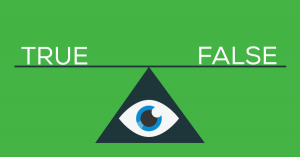
Today’s consumers are greatly empowered. With access to review websites, social platforms and blogs, buyers can now make better informed shopping decisions based on opinions or feedback from fellow consumers.
Social networks like Facebook and Twitter have become platforms of choice for customers seeking assistance or looking to make a complaint.
This behavior shift offers the perfect opportunity for online customer service teams to troubleshoot arising problems and minimize complaints efficiently.
The added impact is that effectively communicated-with consumers are then far more likely to speak highly of a brand. This can act as a key differentiator as word of mouth/peer recommendation has proved to be one of the most trustworthy advertising methods.

There are a myriad of benefits around proactive online customer service, and interestingly, according to recent research, customer care interaction on social media can cost an organization as little as $ 1, when the equivalent phone interaction will cost $ 6.
But how do brands act upon this opportunity? How effectively are they able to react and adjust their social media strategies accordingly?
Researching the retail sector
In early 2015, we conducted primary research on how responsive social media operations are in retail brands in the US and the UK.
After having selected almost 100 brands and tweeting them over 300 times from the accounts of our community management team, we discovered that most brands ignore @tagged mentions on Twitter, failing to meet consumer expectations.
The analysis focused on three categories of Tweets: neutral, questions and complaints.
Going into more detail, 46.6 percent of brands engaged with any tagged @mention overall.
UK brands were slightly more receptive, with a response rate of 50.9 percent, whilst US brands were just above 43 percent.
Under two thirds (64.6 percent) of the retail brands we Tweeted targeted @questions to, managed to respond within the five day period of the study. The percentage decreases when looking at neutral tagged @mentions that aren’t questions (24 percent).
Having touched upon that, what do customers actually expect from brands on social?
It’s all about the timing
At least 80 percent of customers that submit a query to a brand via social media await a response on the same day.
Around half expect a brand response within two hours, with 30 percent of Twitter users and 25 percent of Facebook users hoping for one in under 30 minutes.
As shown in the chart below, timing is vital when it comes to successful consumer care interactions. Surprisingly, a slow response, even if effective, is less likely to determine purchasers to recommend a brand than no response at all.
Going back to Brandwatch’s recent research, we noticed that just 11.2 percent of retail brands respond to questions within one hour and an average of 4.6 percent respond within 15 minutes.
Interestingly, brands take longer to respond to questions than they do to engage with general comments.
In this context, American brands are quicker at engaging with generic @tagged comments, taking on average just 50 minutes to engage with @mentions that don’t involve a question. UK brands take just over an hour, at 63 minutes.
In consequence, all these insights only lead to one conclusion: brands still seem to have a long way to go on social, in terms of meeting customer expectations, who are prone to disappointment due to slow/lack of engagement and interest coming from brands.
What’s next? Helping/supporting businesses to acknowledge the opportunity to capitalize upon the advantages of an effective online customer service.
As expectations for brands’ social support have become increasingly demanding, implementing a cohesive social strategy will only drive brand loyalty and boost customer satisfaction and referrals.
(222)









